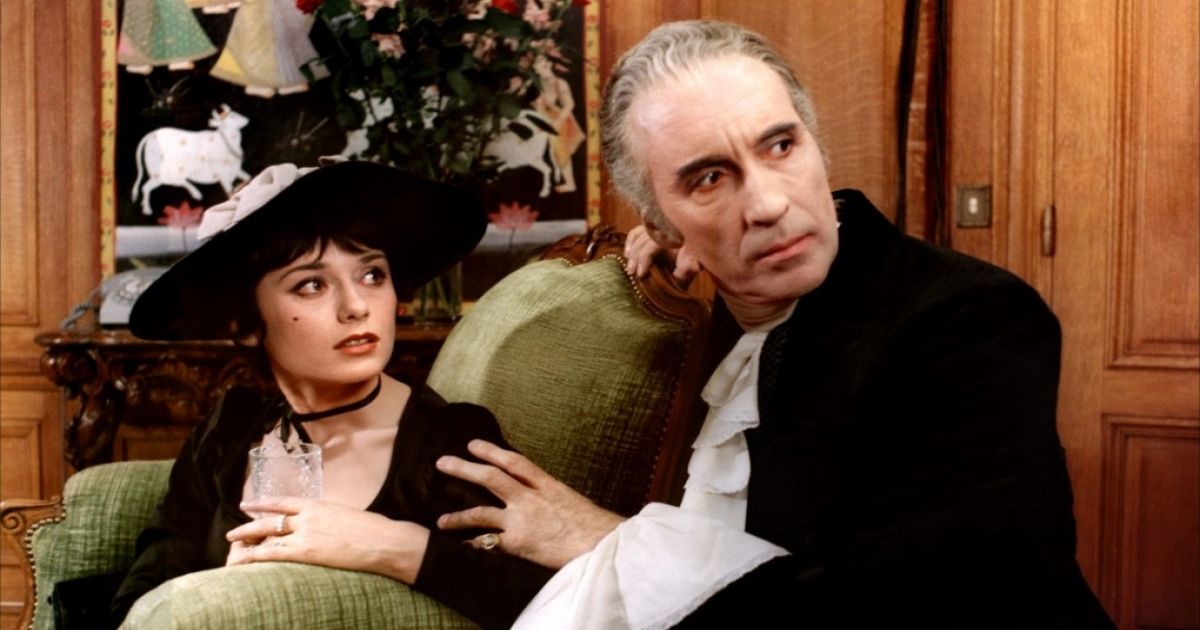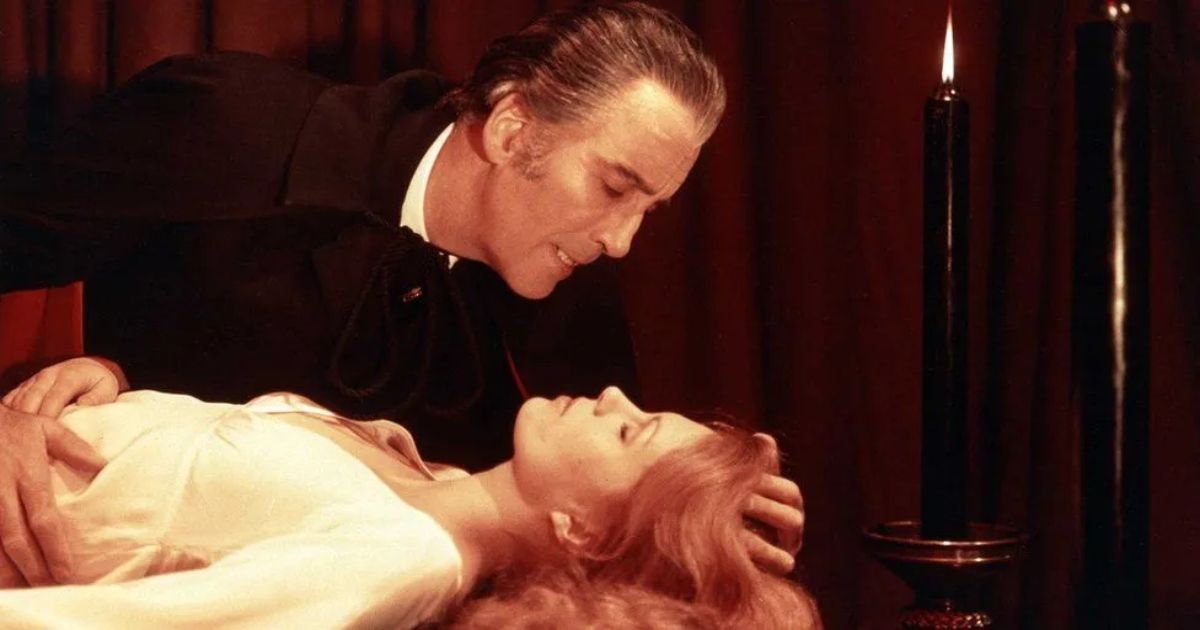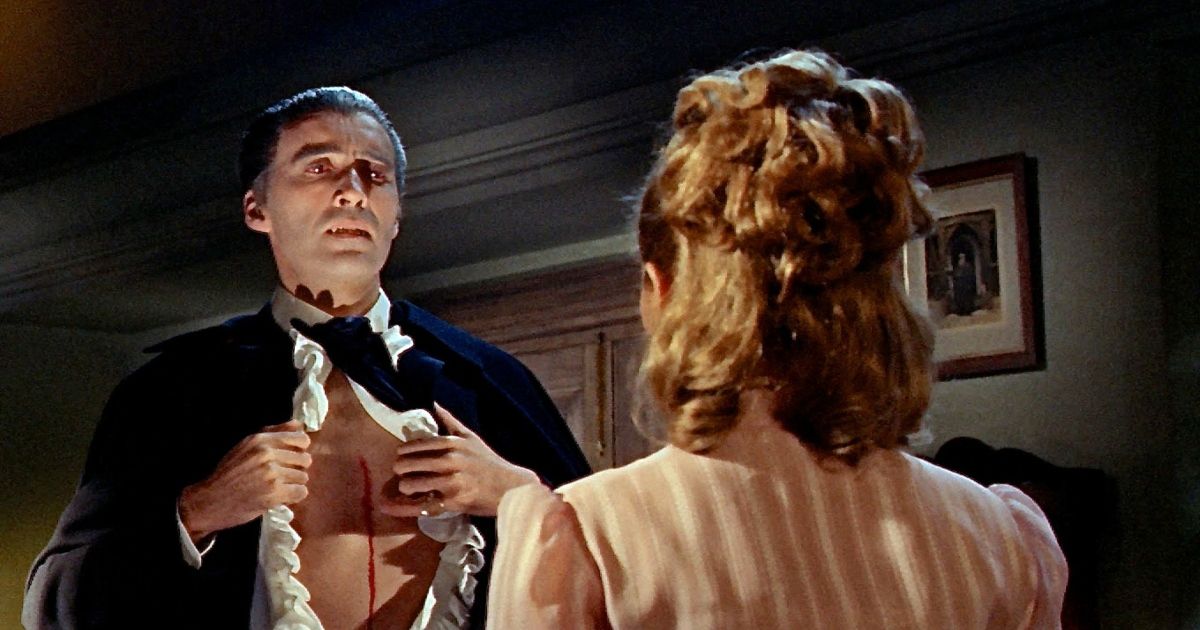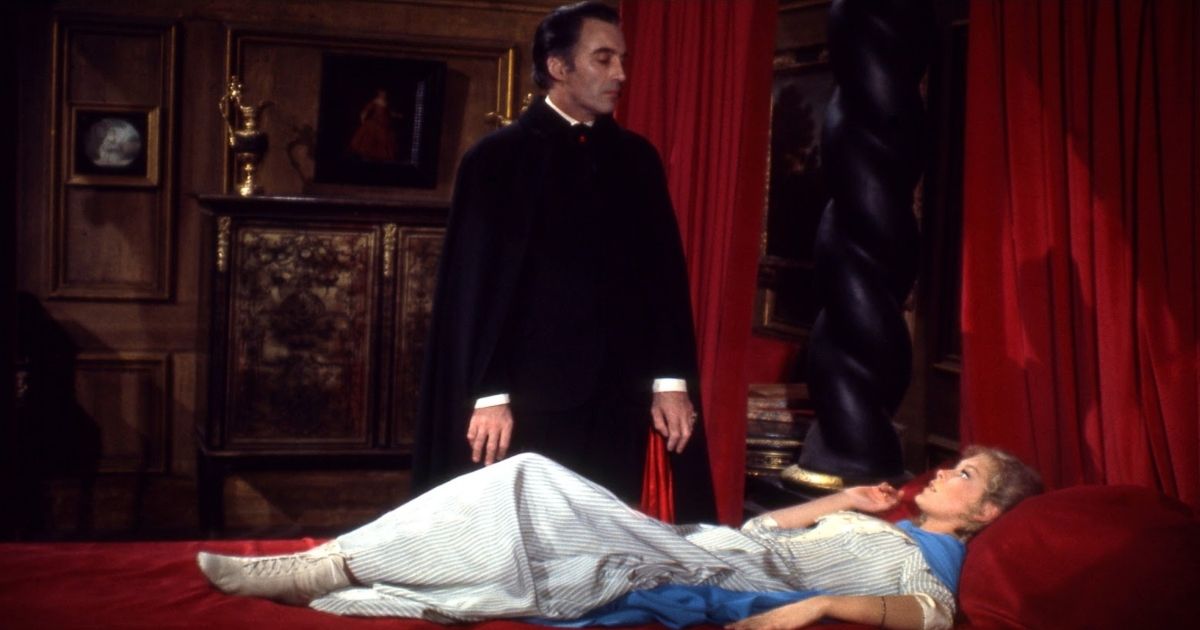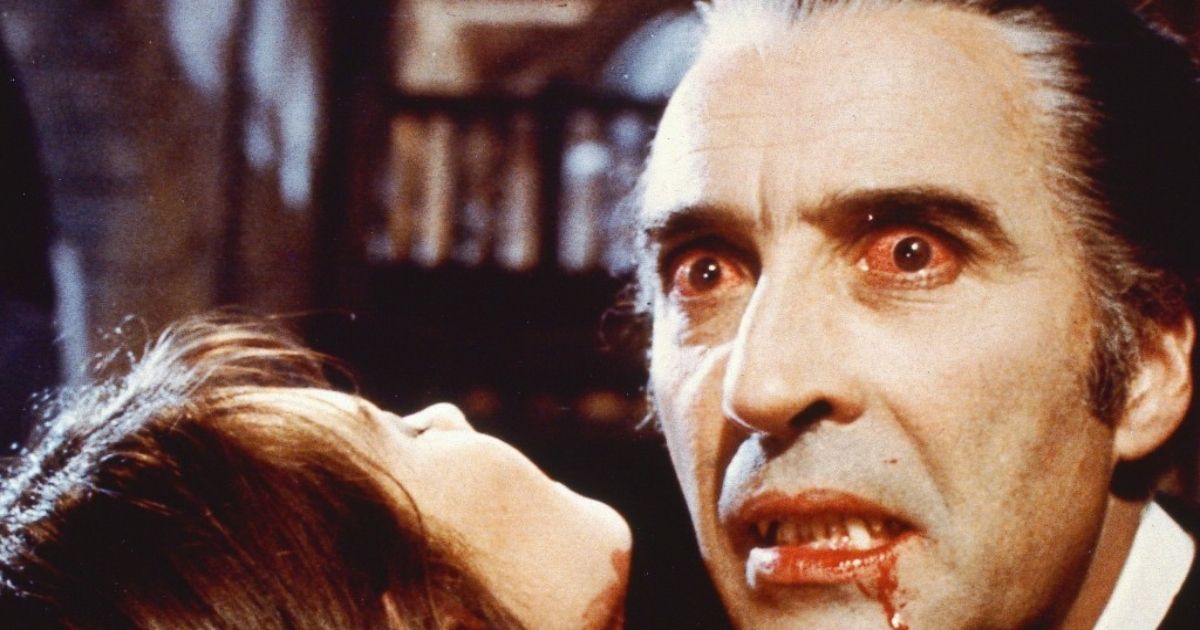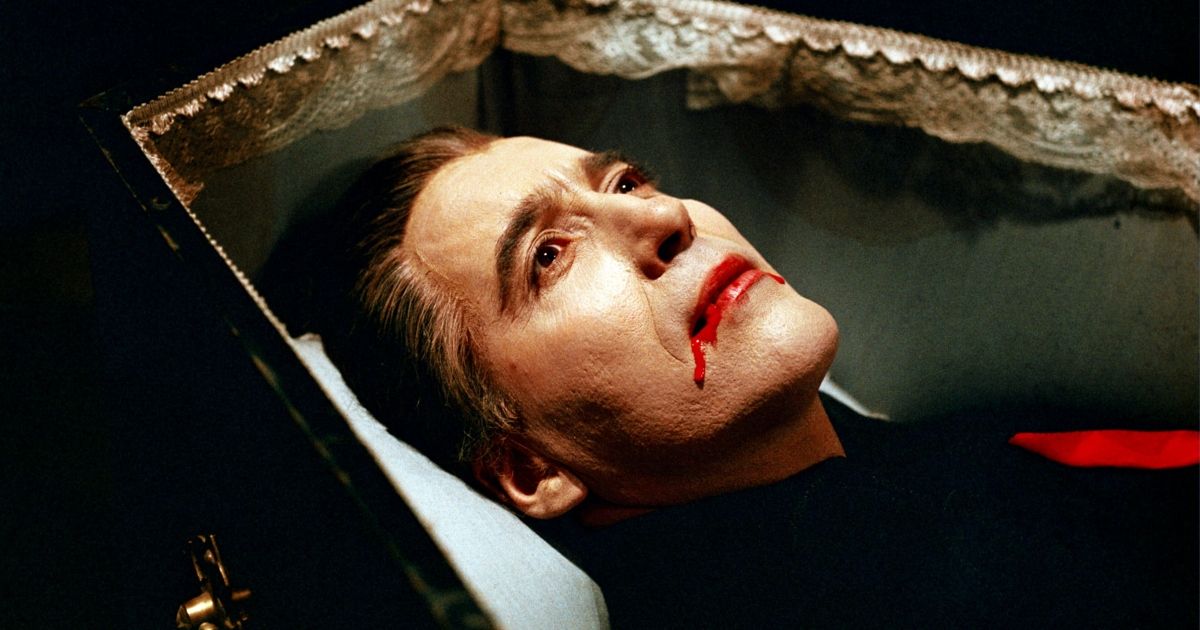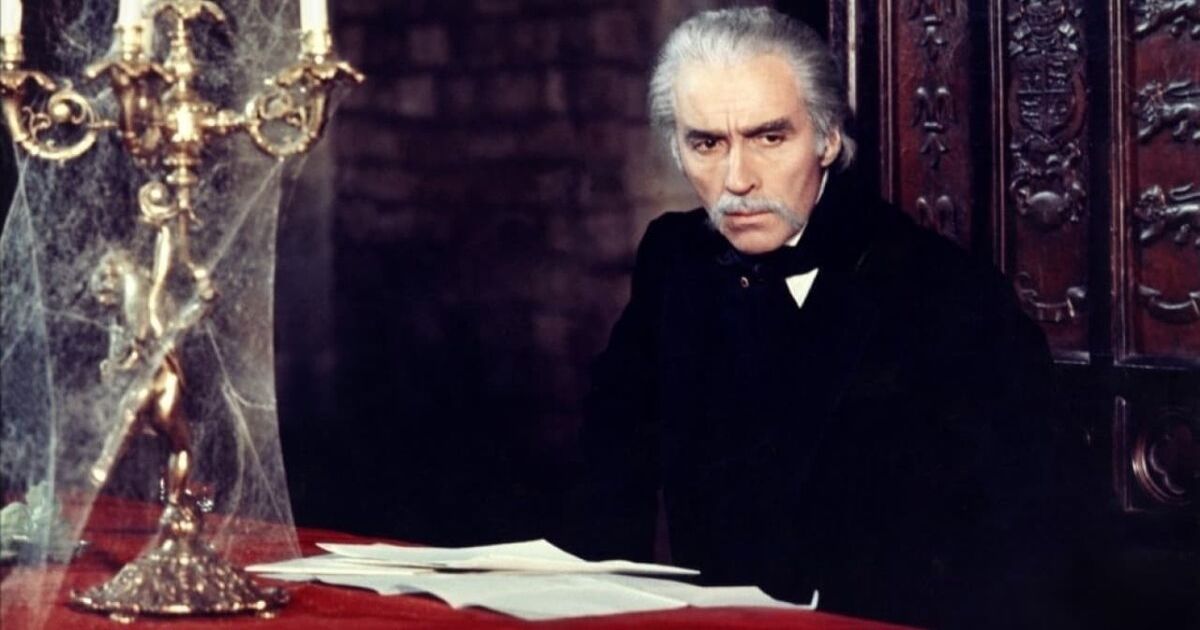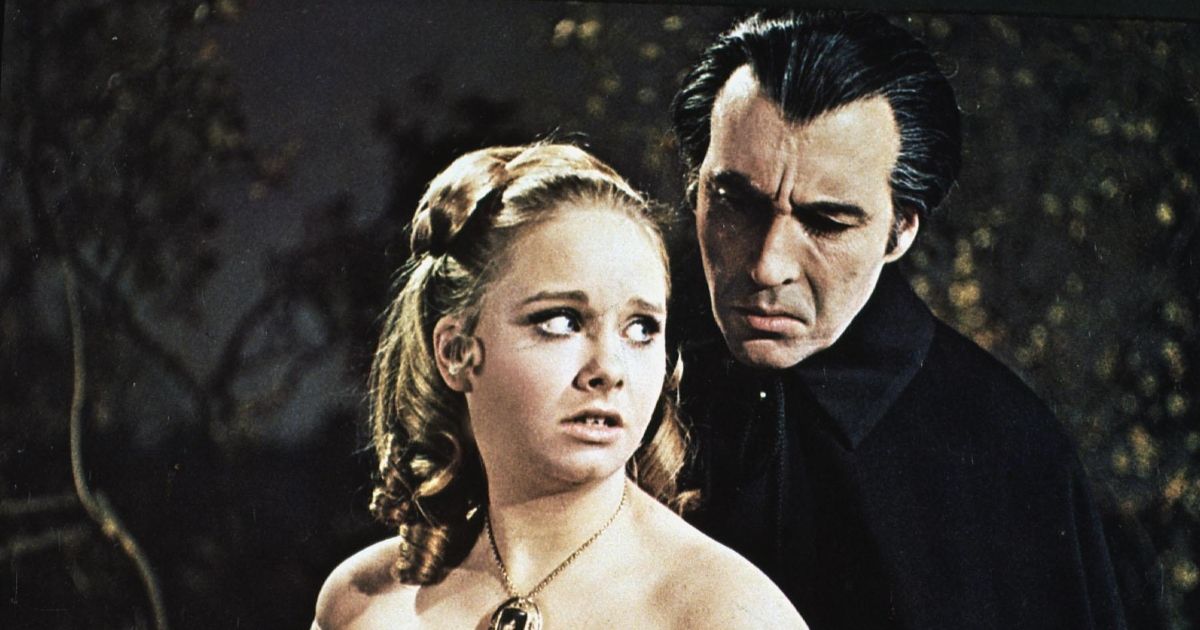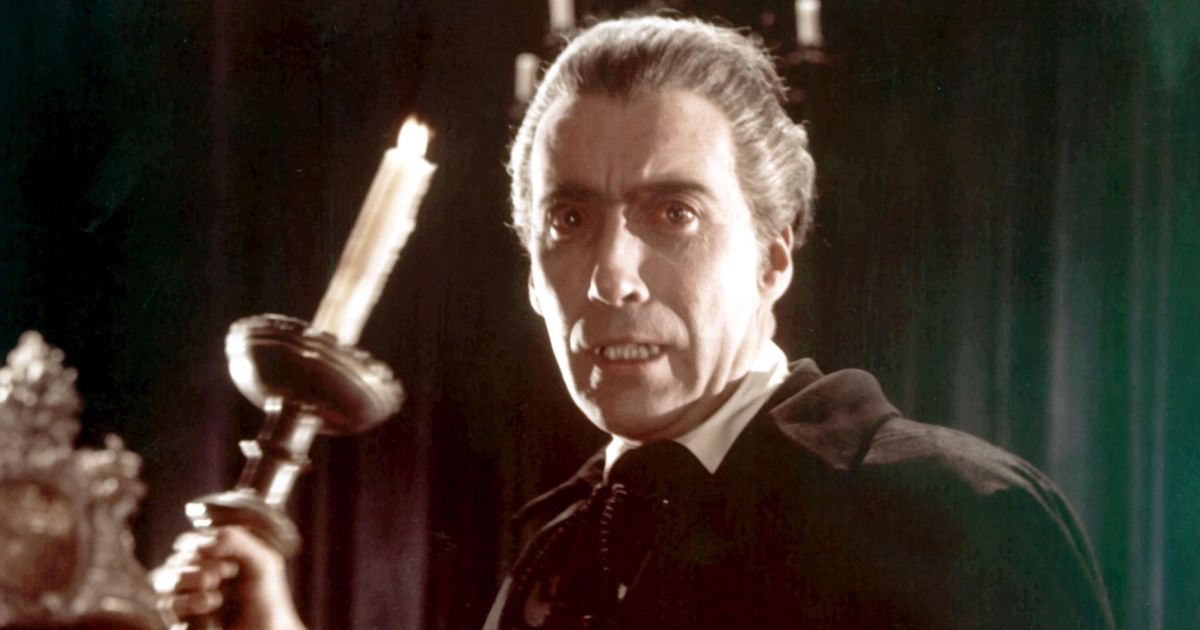Sir Christopher Lee had an incredible acting career that spanned over 60 years, and gave the world many of the most iconic screen villains of all time. One such villain – perhaps the one that Lee is best remembered for playing today – is that detestable Transylvanian nobleman, Count Dracula. He first took on the role in Hammer Film Productions’ 1958 film Dracula (also known as Horror of Dracula), which was the first film to depict the vampire in full color. Though Bela Lugosi’s turn as Bram Stoker’s monster in the 1931 version of Dracula is iconic, Lee’s updated version brought the fangs, bloodshot eyes, and eerie sensuality to the role that has since become the vampiric standard.
Considered by many to be the best actor to ever take on the role of the Prince of Darkness, Lee always performed brilliantly in the part, regardless of the quality of the movie around him. In the list below, we’ve ranked every time he ever put on the fangs.
10 Cameos
Though he was always great in the part, Lee’s turn as Dracula in the 1970 Jerry Lewis-directed comedy One More Time is hardly memorable; it’s a tiny cameo in which he utters one line and, after about 30 seconds of total screen-time, disappears from the picture. Similarly, Lee narrated a 1975 documentary entitled In Search of Dracula, which did contain some Dracula screen-time, though it was mostly archival footage from Hammer films.
9 Dracula and Son (1976)
Dracula and Son is a bizarre French comedy film about Count Dracula and his son leaving their home in Transylvania and beginning life anew. Dracula starts a career as a horror movie actor, and his son becomes a night watchman in Paris, where he falls in love with a woman named Nicole. Soon, the vampire duo are chasing after the same woman, and must learn to live together again in harmony. Full of gags that run the gamut from sidesplittingly hilarious to cringe-worthy, Dracula and Son is the very definition of “mixed bag.” That said, Lee does an admirable job transforming his iconic horror role into a comedic one, and, for Dracula completionists, it’s worth watching for that alone.
8 The Satanic Rites of Dracula (1973)
The Satanic Rites of Dracula is the seventh and final vampire flick produced by Hammer to feature Lee in the role of Dracula. Though Lee is cool as ever with the teeth and the cape, it’s clear from the film’s sluggish pacing and poor writing that the filmmakers who had been cranking out Dracula films for years were running out of steam.
The film attempts to marry two plots together – one about Satanic rituals with a connection to a new strain of bubonic plague and the other about Van Helsing’s unending quest to wipe out vampires – but it’s sloppily done. Dracula’s part is all but tacked on, and from his first appearance, it’s clear that Lee isn’t performing with his usual passion for the part.
7 Dracula: Prince of Darkness (1966)
The continuation to one of Hammer’s best-received films, 1958’s Dracula, Dracula: Prince of Darkness had a high bar to reach. Unfortunately, it didn’t quite get there; the movie’s tale of re-animating the Count is languidly paced and spends far too long on expository dialogue, wasting time on side characters and subplots that ultimately lead nowhere. Once Dracula is back, things pick up, though Lee’s performance is quite different from in the previous film. The Dracula of Prince of Darkness is not the charismatic and magnetic deceiver, but rather a ravenous and raging being that’s desperate for life force.
He’s also at his quietest here, as Screen Rant explains, “While Hammer convinced Lee to return for Prince Of Darkness, he famously disliked the dialogue written for the Count that he doesn’t speak at all in this sequel.” It’s definitely an interesting take on the character, but it unfortunately prevents Lee from doing much of what he does best.
6 Scars of Dracula (1970)
Scars of Dracula sees the Count rise from the dead yet again to begin a new reign of terror when a couple invades his castle in search of a missing loved one. The film capitalizes on Lee’s ability to imbue the horror villain with a seductive aura, and as such delivers one of the most charismatic and lustful Draculas in the history of the character.
Additionally, Lee gets far more to say and do in this film than in most of the others. As Collider points out, “Scars does incorporate a few ideas from Stoker that hadn’t made it to celluloid before. It gives Dracula more to say than was the norm for Hammer, and plays up his connection to bats. The production design, with its heavy use of red throughout the count’s castle, looks fantastic.” Indeed, the film is beautifully shot and richly textured, providing Lee with the perfect provocative playground to excel in.
5 Dracula A.D. 1972 (1972)
Dracula A.D. 1972 is a gleefully ‘70s take on the Gothic legend that brings the Count back to life amidst the swinging party scene of London in 1972. Although its premise – depicting Dracula’s resurrection due to the devilish curiosity of a group of stoned hippies – might sound a little ridiculous, Lee’s timeless take on the Vampire Lord works surprisingly well in the new setting.
In fact, his old-timey manner of speaking and elegantly imposing stature are arguably even more sinister when he’s hunting down innocent and likable party-goers. This film proves that Lee’s Dracula can hold his own against the bad guys of other ‘70s “dead teenager” flicks, such as Leatherface and Michael Myers.
4 Dracula Has Risen from the Grave (1968)
Lee’s third Dracula picture, Dracula Has Risen from the Grave, is a lush and carefully crafted Gothic nightmare that once again sees the Count being revived and bewitching the denizens of a small Transylvanian town. Although there are quite a few lengthy stretches of the film that contain no Dracula at all, the scenes in which he does appear are some of the best in horror history.
Lee is at the top of his game here, striking that rare, perfect balance between ultra-charming and ultra-menacing. He commands the movie, and casts a sinister shadow over everything, including the bits where he’s not even on screen.
3 Count Dracula (1970)
The first Lee-helmed Dracula film made outside of Hammer, exploitation auteur Jess Franco directed this faithful adaptation of the Bram Stoker novel. Simply titled Count Dracula, the film strips away much of the complicated mythos and pulp that the Hammer films were notorious for and focuses purely on telling the Count’s terrifying tale.
As a result, it’s a slow-burn affair dripping in Gothic atmosphere and carried entirely on the back of a sultry, sadistic, and show-stopping performance from Lee. Although the movie as a whole may not be to everyone’s taste, it’s hard to deny that Lee does a tremendous job bringing this rootsy version of the Prince of Darkness to life.
2 Taste the Blood of Dracula (1970)
Taste the Blood of Dracula is Lee’s fourth turn as the titular vampire for Hammer, and though the story itself is fairly routine stuff, the lead performance is undeniably legendary. Resurrected by three dirty old men who kill his loyal servant, Dracula enacts bloody vengeance on them in his usual entrancing way.
With a few dashes of early ‘70s sleaze and shades of slasher films to come, Dracula eliminates his sleazy opponents one by one in some of the best vampire action ever committed to celluloid. The Dracula in this movie is more sadistic and unhinged than in any previous iteration, yet still so full of charm, and Lee brings an infectious enthusiasm to the role that he never quite tapped into again.
1 Dracula AKA Horror of Dracula (1958)
Considered to be one of the all-time greatest films about Dracula, Hammer’s 1958 Dracula breathed new life into the legendary story with eye-popping color and a magnetic performance from Lee. Although the 1931 Universal version of Dracula will forever be a Halloween favorite for many, Hammer’s version upped the ante on every level imaginable. It’s grandiose and dreamlike, and introduced the world to a new kind of vampire.
Lee’s performance here was not only career-defining, but also culture-defining; before Lee’s Dracula, the blood-tipped fangs, red eyes, and the sulking, subversive sexuality that are now so closely associated with the character remained merely hinted at and trapped in the binding of Bram Stoker’s novel. With a great foil in the form of Peter Cushing’s Dr. Van Helsing and magnificent sets to prowl around in, Lee brought it all to life here in his most menacing and memorable performance as the Vampire Lord. This is simply the best – the gold standard for Dracula or vampire films – and Sir Christopher Lee’s finest hour.
This story originally appeared on Movieweb


